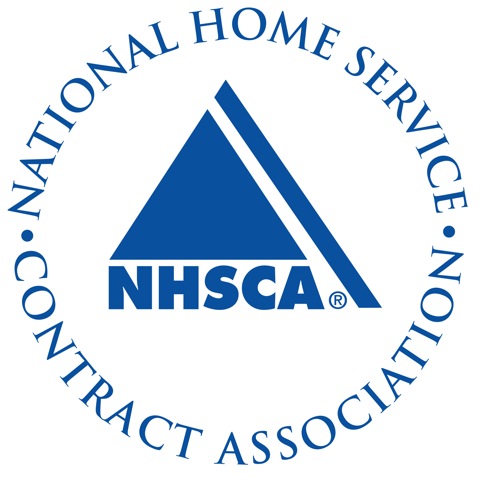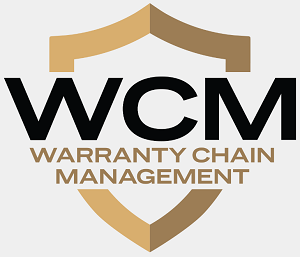Aviation Warranty Association:
Commercial airline warranty managers met in Chicago to discuss issues with plane and parts manufacturers. Also, some tips on home warranty regulations, and links to a guide to how each U.S. state oversees consumer service contract companies operating within its borders.
Editor's Note: These two columns, written by
Airinmar's Matt Davies and Paradox M's Kevin
Wallach, are the latest in an ongoing series of
contributed editorial columns. Readers interested
in authoring a contributed column in the future can
click here to see the Guidelines for Editorial
Submissions page.
Report on the International Aviation Warranty Association Conference
By Matt Davies, senior VP Technical Services & Business Development, Airinmar Ltd.

This past summer, on 30th and 31st August, the International Aviation Warranty Association (IAWA) held its annual conference in Chicago. The conference, this year hosted by Airinmar Ltd. and its parent company AAR, brings together aviation warranty managers from around the world to collectively discuss issues and new developments in warranty management and participate in presentations from expert IAWA members on a range of warranty topics.
This year's conference included presentations and panels on:
- ATA e-Business programs,
- The recent Warranty Week article on Civilian Aircraft Warranties,
- Warranty management at Cathay Pacific Airways Ltd., EasyJet, Jet Airways, and Qantas Airways, and
- Introducing new aircraft at American Airlines Inc., Air Canada, LATAM Airlines Group, and Southwest Airlines Co.
Warranty Week presented a ten-year analysis of warranty expenses reported by civilian aircraft manufacturers, which detailed the claims paid by industry leaders such as Boeing, Airbus, Embraer, Bombardier, and others. In 2016, the worldwide industry's claims payments totaled US$1.14 billion, down from a 2013 peak of $1.71 billion (see chart, below).
Figure 1
Civilian Aircraft Warranties
Claims Paid per Year
(in US dollars, 2007-2016)

Warranty Week editor Eric Arnum explained to the attendees that the Bombardier claims data also included train warranties, and the Textron claims data included extended warranties until 2013.
There were also workshops to discuss and prioritise the main issues faced by aviation warranty managers, which included:
- Time limitations on warranty claim submissions,
- Industry support for Airworthiness Directives,
- Revisions to standard supplier agreements negotiated by the airframe manufacturers, and
- Managing engine guarantees.
Just before lunch, IAWA members gathered in the Airinmar lobby for a group photo:

Unlike many industries, civilian aircraft manufacturers typically pass through their supplier warranty terms to their customers. In other words, airlines submit warranty claims to the part manufacturer, not only to the aircraft constructor.
About the IAWA
In 1996 the Aviation Warranty Managers Group evolved from within the Association of European Airlines. Until that point the subject of warranty at the A.E.A. meetings was given low priority. But due to the increasing activity, and general awareness of warranty matters around the industry, the AWMG was established and met for the first time in June of the same year.
That initial meeting, hosted by Swissair, was attended by nine airlines. Interest steadily grew, and at the March 2000 meeting in Dublin, the number of represented airlines and maintenance providers had more than doubled to twenty.

Word continued to spread and attendance at the meetings kept growing. Members then voted to modify the name to the International Aviation Warranty Association, reflecting the fact that delegates were attending from outside Europe and also creating a more appropriate global identification.
In early 2004, Warranty Week wrote an article about jet airliner warranties and included information in it about the IAWA.
The IAWA now stands at 113 members from 60 organisations from around the world.
About the Author:
Following eight years in aircraft power plant engineering, Matt Davies joined Airinmar in 2005 to specialize in aviation warranty, reliability, value engineering and contract management. Davies leads Airinmar's warranty capability and has provided solutions to numerous airlines and maintenance, repair and operations companies (MROs).
Davies has a degree in aerospace engineering with business studies that he completed with the Open University, is a Member of the Royal Aeronautical Society, and a registered Incorporated Engineer with the Engineering Council of the United Kingdom. Matt has been a member of the IAWA since 2010.
The Insurance Debate: Who Governs Home Warranties?
By Kevin Wallach, founder, Paradox M
CompareHomeWarrantyQuotes.com recently launched a guide dedicated to highlighting the governing authority for home warranties, by state. It found that in 24 states, home warranties are governed by the Insurance Departments of the respective state governments.
The reality is, there is a lot of room open for interpretation when it comes to home warranties and who governs the companies providing them. Most consumers do not think about which laws apply to the home warranty company they have their contract with, until or unless they feel misled, or a service, repair or replacement goes uncovered.
As a result, they have to resort to their own research, to try to uncover how they might go about terminating their contract, or how to seek retribution from the company they got the contract through in the first place.
Here are some good resources, and a starting point to pulling back the regulatory veil on the home warranty industry.
The Not-So Basic Basics: What Defines a "Home Warranty?"
Confusion first starts with the fact that home warranties are not actually warranties, which is why they are also -– and more appropriately so -– referred to as home service contracts.
For all intents and purposes, home warranties, or home service contracts, are exactly that: consumer service contracts. Most of them have 12-month commitments.
And then there are others, such as the former Old Republic Home Protection Co. customer, attorney Douglas Campion, who argued in court filings that home warranty companies are a consumer service and therefore should be regulated by those state laws protecting consumers, not to be treated as a form of insurance, despite being regulated by most state insurance departments.
In this instance, the plaintiff argued that the home warranty company, which collected a monthly service fee in exchange for a promise to service, repair or replace home systems and appliances that fail due to normal wear and tear, was denying qualified services, repairs and replacements and issuing sub-par payments to the services it was providing, and therefore directly violating state laws regulating consumer rights.
In California, specifically through the Supreme Court of California's 2009 decision in Fairbanks v. Superior Court, which ruled that insurance is not a "good" or a "service," they provided a framework for ruling that home warranties are a "service," because unlike insurance, they do not solely provide cash payments, but rather provide funding for actual repair services.
All of this to say, even at the state level, it can be unclear how home warranty companies are classified, and who is responsible for governing them.
How Are Home Warranties Governed?
Research, as outlined in the State Licensing Standards Guide, clearly shows how differently home warranties, or home service contracts, are classified and regulated per each state.
In some states, home warranty companies and their contracts are regulated by insurance authorities. For instance, in Alabama, the Department of Insurance requires that all service contract providers register with the Commissioner of Insurance. In Arizona, all service contract companies have to obtain (and annually renew) a permit from the Arizona Department of Insurance in order to do business there. Arizona is also one of the few states that combines service warranties, home warranties and vehicle warranties all into one license.
In other states, home warranties are very clearly not classified as a type of insurance, but rather have their own governing set of rules and regulating authorities. Such is the case in California, where the California Home Service Contract Association represents the most respected providers of home service contracts in the state. The association is meant for the betterment of home buyers, sellers and realtors, but in a highly-regulated, law-heavy state such as California, it is also a good idea for consumers to do outside research of past rulings and precedents set there -- just so they can know what to expect should an issue arise.
This Warranty Week archived article does a good job of framing the CHSCA and past court filings involving home service contracts in the state of California.

To combat confusion, the National Home Service Contract Association (NHSCA) was established and represents the top tier companies in the regulated home service contract industry.
"Unfortunately, with nearly half the states regulating home warranties from insurance departments, it sends the wrong message to consumers," said Art Chartrand, executive director and counsel of the NHSCA. "We don't sell insurance. We offer consumers a service, at a reasonable budget, to keep their home appliances and systems working."
According to Chartrand, the NHSCA vets its members through ongoing communication and personal visits with management and their call centers.
"Through consumer education and working closely with our trusted allies in the real estate community, especially with real estate agents themselves, we have become an integral part of helping people maintain value and comfort in their home," said Chartrand.
The NHSCA continues to work closely with regulators in all states to limit the activity of questionable and illegal providers. According to Chartrand, the home warranty industry is regulated in all 50 states, either by insurance departments, attorneys general offices, real estate commissions, or other agencies.
Closing Thoughts: Do Your Homework
What seems to be the most frustrating reality for some home service contract consumers is not knowing who to turn to when they feel they have been misled, or after they have signed into a contract that is rendered virtually useless to them once they realize what is covered and what is not.
Some home warranty companies provide clearly defined parameters in their contracts of what they will cover in the event of a malfunction or a complete system or home appliance breakdown, while others make false statements and advertise services they do not ultimately end up covering.
And while this feeling of being misled, or consumers not completely understanding what is included in the contract in the first place, is not unique to home warranties, it is often what is cited in online company reviews and on social media.
The 2016 Better Business Bureau Compliant and Inquiry Statistics report ranked the home warranty plans industry number 19 out of thousands of classifiable industry sectors.
This is also why online tools, such as CompareHomeWarrantyQuotes.com and HomeWarrantyReviews.com, are important to consult with before purchasing a home warranty plan.
My advice: research companies and find competing quotes. Like any contract, do not sign a home warranty without reading it in its entirety.

About the Author:
Kevin Wallach has eight years of experience in the home warranty industry.
In addition to founding CompareHomeWarrantyQuotes.com, which is the flagship website for Paradox M LLC, Kevin also previously ran and operated HomeWarrantyWiz.com, which was established with the sole purpose of educating consumers about home warranties.
Kevin's expertise has been called upon numerous times throughout his career, including to consult with researchers and investment groups to provide his perspective as a longstanding member of the home warranty marketing community.
Kevin's thought leadership in the home warranty industry can best be demonstrated by the global Home Warranty and Home Service Contract Professionals LinkedIn group he administers, which caters to those professionals who service the home warranty and home service contract industry.









